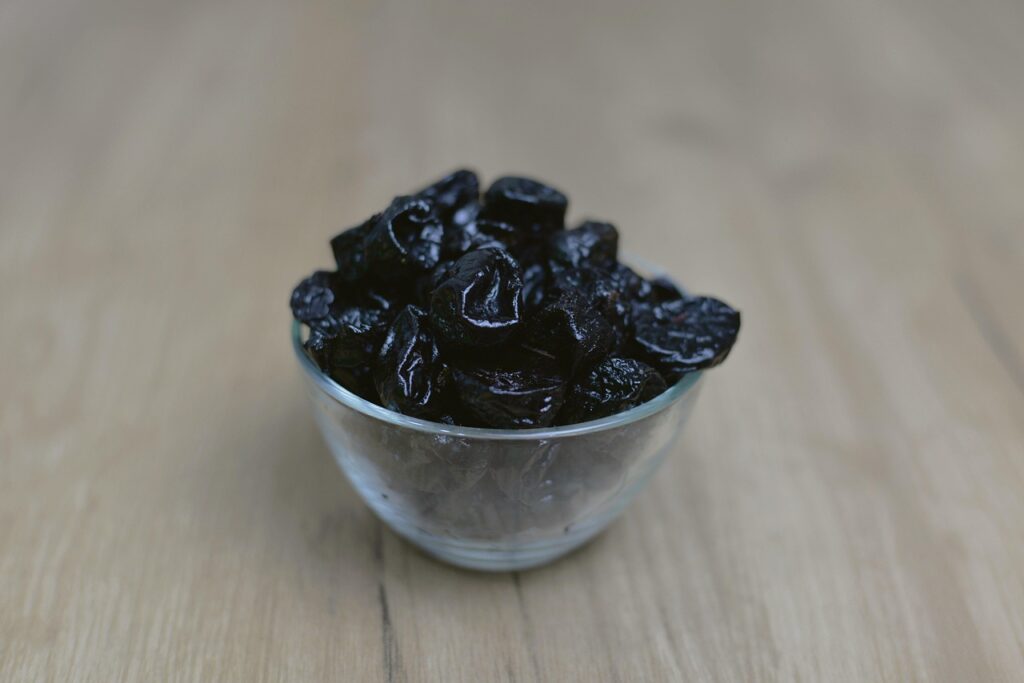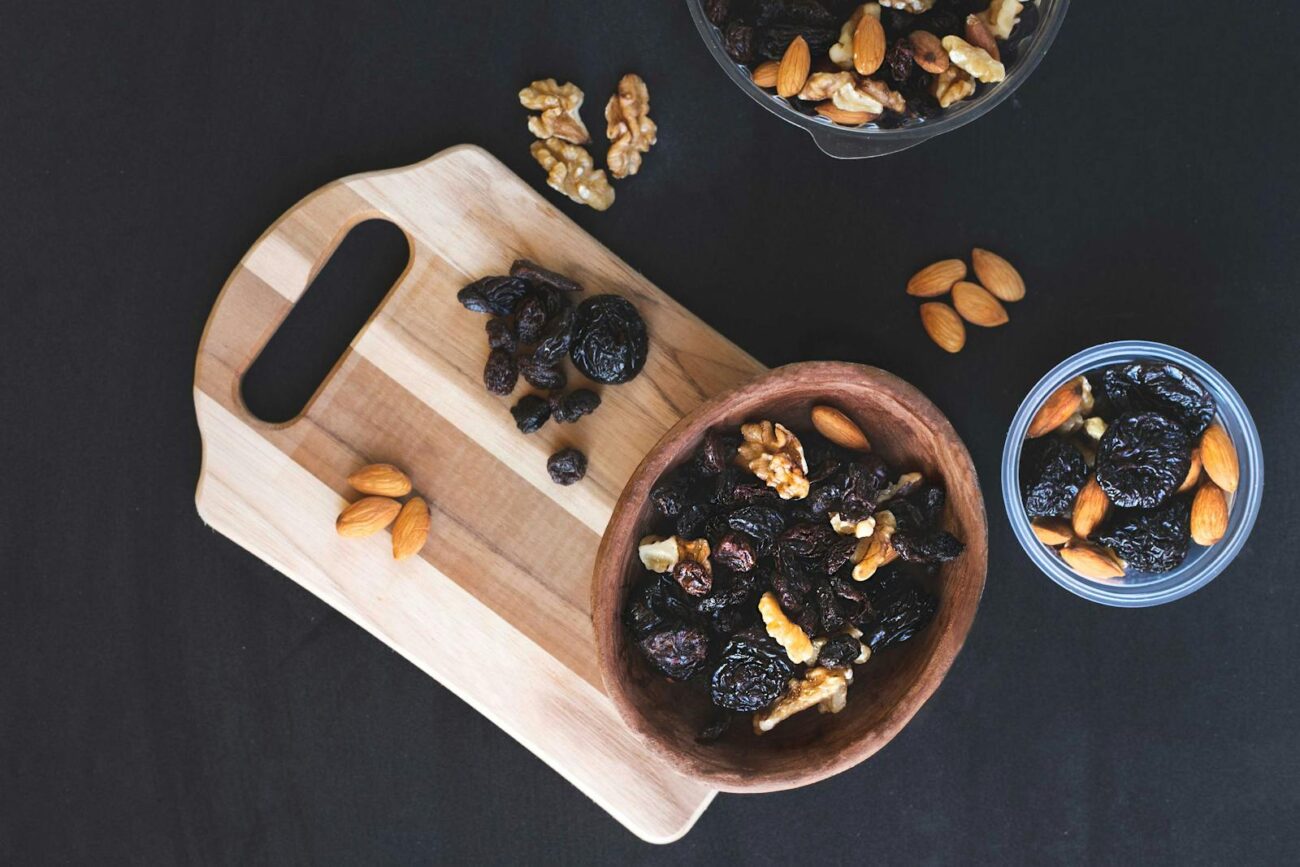Dried prunes, often overlooked in the world of superfoods, are a nutritional powerhouse that deserves a spot in your pantry. These wrinkled, sweet treats are not just a remedy for digestive issues but also offer a wide range of health benefits. However, like any food, they come with a few contraindications.
In this blog post, we’ll explore the benefits of dried prunes, how to incorporate them into your diet, and who might need to consume them with caution.
What Are Dried Prunes?
Dried prunes are simply plums that have been dehydrated to remove most of their water content. This process concentrates their nutrients and natural sugars, making them a sweet and chewy snack. They are rich in fiber, vitamins, and minerals, making them a healthy addition to your diet.
Health Benefits of Dried Prunes
- Promotes Digestive Health
Dried prunes are perhaps best known for their ability to relieve constipation. They are packed with dietary fiber, including both soluble and insoluble types, which help regulate bowel movements. Additionally, prunes contain sorbitol, a natural sugar alcohol that acts as a mild laxative. - Supports Bone Health
Prunes are a surprising ally for your bones. They are rich in vitamin K, magnesium, and potassium, which are essential for maintaining bone density. Studies suggest that eating prunes regularly may help prevent osteoporosis and improve bone strength, especially in postmenopausal women. - Rich in Antioxidants
Dried prunes are loaded with antioxidants, particularly phenolic compounds, which help combat oxidative stress and inflammation in the body. These antioxidants may reduce the risk of chronic diseases like heart disease and certain cancers. - Helps Regulate Blood Sugar
Despite their sweetness, prunes have a low glycemic index (GI), meaning they release sugar slowly into the bloodstream. This makes them a suitable snack for people managing diabetes or those looking to maintain stable energy levels. - Supports Heart Health
The fiber, potassium, and antioxidants in prunes work together to support cardiovascular health. Potassium helps regulate blood pressure, while fiber can lower cholesterol levels, reducing the risk of heart disease. - Aids in Weight Management
The high fiber content in prunes promotes satiety, helping you feel full for longer. This can prevent overeating and support weight management goals when consumed in moderation.
How to Incorporate Dried Prunes into Your Diet
Dried prunes are incredibly versatile and can be enjoyed in many ways:
- As a snack: Eat them on their own for a quick energy boost.
- In baking: Add chopped prunes to muffins, cookies, or bread for natural sweetness.
- In savory dishes: Use prunes in stews, tagines, or salads for a touch of sweetness.
- In smoothies: Blend prunes with yogurt, milk, or plant-based alternatives for a fiber-rich drink.
- As a topping: Sprinkle chopped prunes on oatmeal, yogurt, or cereal.
Contraindications and Considerations
While dried prunes are generally safe and beneficial for most people, there are a few situations where caution is advised:
- High Sugar Content
Dried prunes are calorie-dense and contain natural sugars. Overconsumption can lead to weight gain or blood sugar spikes, especially for individuals with diabetes. Moderation is key. - Digestive Issues
While prunes are great for relieving constipation, eating too many can cause bloating, gas, or diarrhea due to their high fiber and sorbitol content. Start with a small portion (3-4 prunes) and adjust based on your tolerance. - FODMAP Sensitivity
Prunes are high in FODMAPs (fermentable oligosaccharides, disaccharides, monosaccharides, and polyols), which can trigger digestive discomfort in people with irritable bowel syndrome (IBS) or similar conditions. - Allergies
Although rare, some individuals may have an allergy to prunes or other dried fruits. If you experience symptoms like itching, swelling, or difficulty breathing after consuming prunes, seek medical attention. - Interaction with Medications
Prunes are high in vitamin K, which can interfere with blood-thinning medications like warfarin. If you’re on such medications, consult your doctor before adding prunes to your diet.

Dried prunes are a delicious and nutrient-dense food that can offer numerous health benefits, from improving digestion to supporting bone and heart health. However, like any food, they should be consumed in moderation and with consideration of individual health conditions.
Whether you enjoy them as a snack or incorporate them into your meals, dried prunes are a simple and tasty way to boost your overall well-being.

